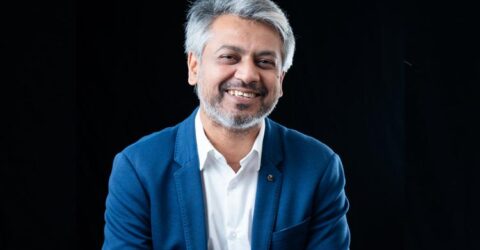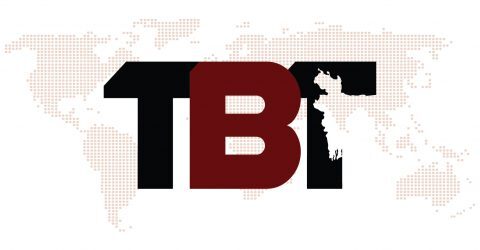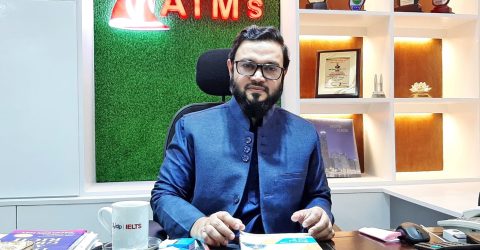How ‘local’ is locally-led adaptation?
Looking beyond the rhetoric of ‘local’ – what can make climate action plan truly bottom up
The Bangladesh The Bangladesh
Today

Neha Khandekar and Arup Barua : Are the recent flooding events – cropping up in disparate parts of the world including China, Libya, India, Pakistan, Germany, Bangladesh– a handwriting on the wall to the governments and the international community, to nail down some overlooked aspects of climate action plan?
Locally-led adaptation is gaining traction and it will be crucial to perceive how the framing of ‘local’ in locally-led adaptation will enable meaningful participation of local actors and institutions. In this article, we attempt to spell out why and how this framing can be critically examined.
Under the umbrella of the Intergovernmental Panel on Climate Change and the United Nations Framework Convention on Climate Change, members of the epistemic community entailing dominant multilateral organisations, elite think tanks, funders, and international NGOs played a pivotal role in institutionalising and reshaping major decisions and terminologies related to climate actions. Several terminologies such as ‘participation’, ‘empowerment’, and ‘engagement’ of the most vulnerable population in the climate change arena became buzzwords that were externally driven from the Global North.
Locally-led adaptation has been theorised as an alternative approach to community-based adaptation (CBA). Nevertheless, the pitfalls of CBA are yet to be fully investigated, and some projects of CBA profess increased resilience and reduced vulnerability to climate change of affected populations in a number of countries. Now, what LLA proposes involves a robust transformation in the country’s governance system, sub-systems and diverse institutions. While a local government is not politically mandated to perform its administrative reforms, and fully or partly rests on the central government for economic resources, it would not be easier to reflect on the ‘local’ agenda objectively.
Due to an imbalanced power structure, influence of political systems and hierarchies, bureau-technical process, the institutions and the actors of a local government or representatives would grapple in placing the ‘local’ agenda into the national agenda in a fully centralised governance system. Furthermore, following a Foucauldian perspective on the nexus of power and knowledge creation and dissemination, a local solution might be un-appraised compared to a donor-driven formula. Often funders’ interest and ideas are given higher priority in ironing out local problems, considering western organisations and think tanks possess a wealth of scientific knowledge and sophisticated understanding of global issues alongside their financing instruments.
The dominant way of doing climate science is still exclusionary. There is politicisation of knowledge production with powerful actors in control of creating dominant narratives. This has its roots in the colonial legacy but also inherent power inequities in the form of caste, patriarchy, geography etc. at sub-national and national level.
Manifestation of vulnerabilities (exposure to risk and sensitivity) occur at the intersection of political, geographic and economic drivers of exclusion. However, vulnerability is also a paradox with these very factors often being most informed about the solutions but labelled ‘vulnerable.’ Popular framing in media frames ‘monsoon, storms’ or ‘uncertain weather’ as a villain and paints a picture of insecurity. This sort of framing and labelling invites a whole host of top-down solutions imposed on ‘beneficiaries’. Therefore, one needs to be wary of reductionism in climate and water (hydrological) sciences. And the fact that science or knowledge production is not value neutral.
The contextual nuances can only be revealed by looking for alternative ways of doing science such as anthropological tools of inquiry and theories grounded in emotional and affective experiences of the vulnerable local communities’ lives and livelihoods. The mission thinking bullet pointed style messaging is good to set larger goals and visions but dilutes the lived experiences of people. Looking towards storytelling or narrative analysis can enlighten us working in the policy and planning space for understanding the histories and contexts better for planning tailored solutions. Seeking methods for social justice in both theory and practice can act as powerful agents in enhancing agency and representation for those excluded.
While framing locally-led adaptation in international negotiations, it is crucial to incorporate the thought process of creating agency for communities at the ground. Successful implementation will only happen when we confront the politics of knowledge production and financing, and advocate for representation of disciplines such as environmental humanities, history and the voice of the local communities.
Actively observing and participating in climate justice and decolonisation movements is equally important. Looking beyond ‘mission thinking’ towards storytelling as a powerful instrument for policy making; using participatory rural appraisal method for action research in planning adaptation on ground; grounding climate and water science theories embedded in emotional and affective experiences; and learning from the lived realities of the marginalised communities, or the daily mundane of lives of labour can be a way forwards to transform the current paradigm of locally led adaptation.
As Mao Zedong famously said, “It doesn’t matter whether a cat is white or black, as long as it catches mice”; what matters most is not what label or terminology we use to define adaptation, we have to guarantee it that it addresses the structural inequalities and ameliorate the decision-making capabilities of local communities.
Neha Khandekar is a researcher and policy specialist based out of New Delhi, India. Arup Barua is a policy researcher and Erasmus scholar.




